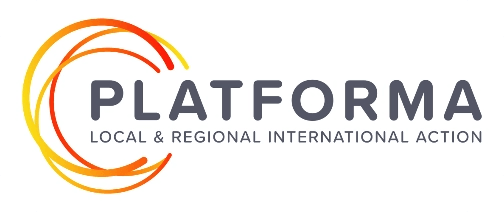The COVID-19 crisis and the illegal Russian invasion of Ukraine continue to have a negative impact on all sectors and all populations. These crises have shown that global partnerships, particularly decentralised cooperation initiatives, are needed more than ever as they tackle global challenges in a way that is inclusive and just, as well as presenting long-term sustainable solutions.
International city-to-city and region-to-region partnerships can be found at the core of the work managing the international dimension of the SDGs. This can take on many forms but, in the case of 39% of the LRGAs that responded, it has largely been carried out through participation in European/international networks and fora (international events, campaigns, etc.). For 24% of our respondents, the development of international/city-to-city or region-to-region partnerships was deemed most relevant; whereas for 18%, strengthening the lobbying aimed at European/international organisations was their priority in this area. Yet, for another 12%, their work focused more on policy coherence (by relying on existing European and/or international strategies such as the new European Declaration on Global Education to 2050 and the UNESCO framework for raising awareness and educating on global citizenship).
LRGAs have also been working on international partnerships using the SDG framework. This collaboration, which very significantly often takes on the form of decentralised cooperation, has led to significant results. It strengthened the work with European and international networks for 29% of respondents; it helped to revitalise existing international partnerships and develop new international partnerships for 17% of associations responding; it enabled collaboration with external stakeholders (civil society organisations, universities, think tanks, etc.) for another 17%; and for 10%, it strengthened their collaboration with the national government.
To broaden the real impact on the ground of these international collaborative partnerships, LRGAs throughout all of Europe have also engaged with non-EU partners as part of their efforts to localise the SDGs. Study visits and storytelling conferences were deemed to be the most beneficial instrument for 22% of the respondents. An additional 22% found it very beneficial to provide training/capacity building activities as they fostered mutual learning and established shared ground. This also held true when devising local SDG strategies together based on shared objectives and interlinked SDGs, which was favoured by 18% of the respondents. For 9%, collaborative activities took on the form of mutual support during the preparation process of VSRs.
The following chart shows the main focus of our respondents’ SDG work involving international partners as well as their partner’s knowledge of SDGs:
Data from 2022:
Our associations also assessed non-EU partners’ knowledge of the SDGs as follows:
|
In 2022, we received the following feedback to the same question, with a considerable 41% unsure of the level of SDG knowledge of their partners. This figure was reduced to 25% in 2023 (see numbers from 2023 in the chart below). As can be seen, there has been significant progress in this area to the benefit of international partners.
